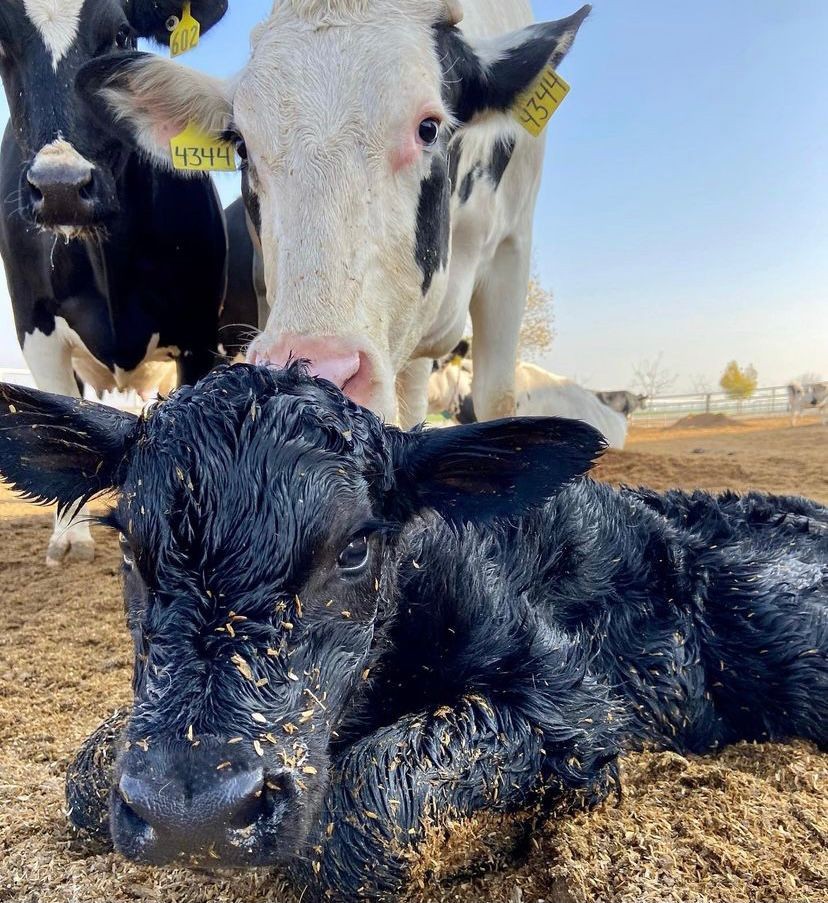Make the most of beef-on-dairy calves
"Sexed semen has changed the dairy landscape," said Dan Schaefer, an animal science professor emeritus at the University of Wisconsin-Madison, during the May Hoard's Dairyman webinar. "The technology of sexed semen enables more rapid genetic progress in the dairy herd."
The question, he said, is what to do with the extra cow matings no longer needed to produce heifer calves. "The goal, of course, would be to add value to the surplus calves," he said in his webinar presentation, titled "Capturing full value for Holstein and crossbred steers."
One way to create a more valuable calf is to cross dairy cows with beef sires, producing a first-generation animal that would qualify for the Certified Angus Beef premium.
Beyond a black hair coat, Schaefer said other desirable characteristics include modest or better marbling and superior muscling. In all, there are 10 quality specifications in the Certified Angus Beef program. While both dairy and crossbred steers can produce a quality meat product, it takes more than just breeding Holstein cows to any beef semen.
"This is an amazing challenge to produce, in the F1 generation, progeny that meets the Certified Angus Beef standards. That's a huge challenge in one generation," Schaefer noted.
Best options for Holsteins and Jerseys When selecting beef sires to breed to Holstein cows, Schaefer said to pick a bull that is homozygous black and homozygous polled. Select sires with a frame size of 5 to 5.5 on a 9-point scale. Look for a ribeye area in the top 20% of the breed, a marbling score in the top 20%, and calving ease in the top 50% of the breed.
For Jerseys, Schaefer again said to look for sires that are homozygous black and polled. Aim for a frame size of 6 to 6.5 to add a bit of size to the progeny. Target top 20% for ribeye and marbling and top 50% for calving ease.
"Aim to produce an F1 animal that is more than simply a black calf," Schaefer emphasized. "If it won't qualify for Certified Angus Beef, it's just a black Holstein or black Jersey. Then there is no reason to value that animal greater than a straight bred Holstein or Jersey bull calf."
When it comes to marketing these beef-on-dairy crosses, Schaefer advised producers to sell them young or wait until they are finished.
"For the Holstein by a beef bull calf, the easiest profit is realized by selling the 100-pound calf," he said. "It is challenging to get added value from the sale of those F1 progeny when they are marketed as feeder cattle. Therefore, I will recommend these beef-on-dairy progenies are sold as young calves or that ownership is maintained until they are sold as finished cattle."

Photo Credit: Jessica Pereira
Upcoming Events
WNY Pastureland Conversion & Soil Health Field Day
July 16, 2025
Middleport, NY
Join American Farmland Trust for the Western New York Soil Health Field Day on July 16, 2025, at Zeliff Farm in Middleport, NY, from 9:00 AM-3:15 PM. Learn about pasture conversion, soil health benchmarking, biochar in grazing systems, and best grazing practices. Plus, enjoy hands-on demos with the NY Soil Health Trailer, drones, and cover crops! Check out the attached agenda for more information about the field day and REGISTER HERE. Zeliff Farms is a regenerative beef operation who has recently partnered with AFT on outreach and education to farmers including learning circles and evaluating biochar effects on soil health.
IPM Strategies to Protect Corn and Soybean Seed in NY
July 30, 2025
Hamburg , NY
SWNYDLFC and Cornell IPM are hosting a grower meeting to discuss integrated pest management strategies for protecting corn and soybean seed in New York.
FAMACHA Training for Sheep and Goat producers in Woodhull NY
August 13, 2025 : FAMACHA Training in Woodhull
Woodhull, NY
Join us for a discussion and hands-on training for internal parasite integrated pest management in sheep and goats. Certification is available to all students participating in the workshop.
Announcements
No announcements at this time.





